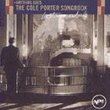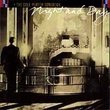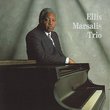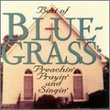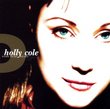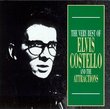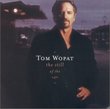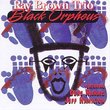| All Artists: Paul Van Nevel Huelgas Ensemble Title: Alexander Agricola: A Secret Labyrinth Members Wishing: 1 Total Copies: 0 Label: Sony Classical Release Date: 12/30/2009 Genre: Classical Styles: Chamber Music, Historical Periods, Classical (c.1770-1830) Number of Discs: 1 SwapaCD Credits: 1 UPC: 074646076026 |
Search - Paul Van Nevel Huelgas Ensemble :: Alexander Agricola: A Secret Labyrinth
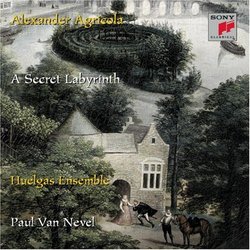 | Paul Van Nevel Huelgas Ensemble Alexander Agricola: A Secret Labyrinth Genre: Classical
Alexander Agricola: A Secret Labyrinth / Huelgas Ensemble, Paul Van Nevel |
Larger Image |
CD DetailsSynopsis
Album Description Alexander Agricola: A Secret Labyrinth / Huelgas Ensemble, Paul Van Nevel Similarly Requested CDs
|
CD ReviewsGlorious weirdness eczematic | Sydney, Australia | 01/18/2001 (5 out of 5 stars) "Agricola is quite a natural choice for the Huelgas Ensemble, being not only underrecorded like so many other composers whose works they have performed (Pipelare, Manchicourt, etc), but also full of intricate and bizarre contrapuntal techniques which are ideally suited to van Nevel's wilfully iconoclastic interpretations. There are several contentious performance decisions here, but it all sounds so amazing that I don't care. The contrast between the rich, strident sound of these Belgians and your average soprano-heavy English choir is amazing. The Huelgases sing this stuff with an amazing capacity to maintain a gorgeous choral blend AND to bring out the long, often quirky individual lines in the polyphony. There is a bewildering richness of material on offer here: sombre chansons like "Je n'ay deuil" full of yearning dissonances and thick, mellifluous textures; ingenious mathematical canons (Agnus Dei); sparkling quasi-instrumental miniatures (chants sur le livre); and fast moving mass sections full of astonishing harmonic inventiveness (listen to the two osanna sections of the sanctus for some gesualdo-esque harmonic perversity). Yet another wonderful, resonant recording by Wolf Erichson." A Well-kept Secret in My Own Labyrinth Giordano Bruno | Wherever I am, I am. | 12/09/2008 (5 out of 5 stars) "I bought this CD in 1999, when it was fresh from the mint, but I forgot to listen to it and it sat on my shelf unheard until this week. Meanwhile I've often moaned and groaned about the absence of choice performances of the music of Alexander Agricola (1446-1506), especially of his masses. But the moaning can stop. This performance of chansons and mass movements does the job.
Nearly the same age as Josquin Desprez, Agricola was also nearly as venerated in his own time. The scion of a wealthy patrician family of Ghent, Agricola must have chosen a career as a singer and composer out of love for music rather than need; he is almost unique among his peers in never taking clerical orders or holding any churchly offices. That's just the tip of Agricola's eccentricity, however. His compositional style is so distinct that his works are instantly recognizable from others of the Franco-Flemish era. Unlike Josquin, he had no school of imitators - perhaps no serious students - yet his music was acknowledged by the theorists of the century as often and as favorably as Josquin's. Ottaviano Petrucci, the Venetian printer who knew his market extremely well, published more of Agricola by far than of most of his generation. The chanson "Je nay dueil" has survived in fourteen far-scattered sources. But Agricola is hard... hard to imitate and hard to perform. Unlike Josquin or Mouton, whose music is accessible to amateur choirs, Agricola is all or nothing: you get it right or you don't get it at all. Many of the Franco-Flemish masters were fond of musical puzzles and conundrums of modality. The conventions of "white note" partbooks encouraged such in-group communications. Agricola played such games avidly, to the point where modern musicologists have frequently been stumped by his treatment of 'ficta' and his unorthodox hexachordal modulations. Even if you don't understand the terms I've used here, I predict that you'll be able to hear the results of the composer's venturing through the "secret labyrinth" of his unique harmonic language. Even when somebody has conquered the labyrinth, indicated the proper sharps and flats, and transcribed Agricola into modern notation, Agricola is still hard. No composer of the 15th Century threw such complicated rhythmic figures, such insistent polyrhythmic anarchy at the struggling musicians. Just listen to the first track of this CD, a duet, in which the tenor sings a long-note cantus firmus while the treble voice slithers and flitters through seven different 'prolations' - time-signatures that indicate how the tactus is to be divided - in extremely quick and quirky little notes. Then imagine three such quirky lines superimposed on a cantus firmus which also takes unexpected turns of timing; that's what you'll hear, if your ears are agile enough, in that famaous chanson 'Jay nay dueil.' The time signature of a composition in 'white note' had a fundamentally different meaning from the 4/4 or cut time of modern 'black note' notation. Most importantly, white note had no bar lines; the music was measured but not 'in measures.' Here's a hint for judging the skill of ensembles performing the music of Agricola or his contemporaries: if you can hear/feel the down beats of measures, the group is clueless. Paul Van Nevel's "Huelgas Ensemble" has often been clueless, in my estimation. They're often thrown together choirs of voices and instruments that rumble grandiosely and make a muddle of polyphony. Their recording of Antoine Brumel's 12-voice Missa et ecce terrae moto is an example; I defy anyone to pick out and follow more than the two sopranos through that grumble-jumble. I suppose that's why I never got around to listening to this CD until now. Imagine my surprise! This is a purely vocal performance, as it should be. Several of the pieces are sung with agility one on a part, and the mass movements sung two or three on a part are nevertheless very tight and transparent in ensemble, very horizontal and independent in phrasing, so that the furious interplay of contrary sound waves dance in acoustic space like hundreds of colored birds in a closed aviary. I didn't know Huelgas could sing this well! One final comment: The "Missa Guazzabuglio" is not a single mass but rather a sequence of the most vivid and bizarre movements from five of Agricola's masses. Ordinarily I would prefer a performance of a single mass, unified or not, but Van Nevel has patched together quite a treat for the listener with mathematical instincts, an absolute rhythmic labyrinth, the secret heart of which is the zany serenity of the Agnus Dei." |

 Track Listings (13) - Disc #1
Track Listings (13) - Disc #1